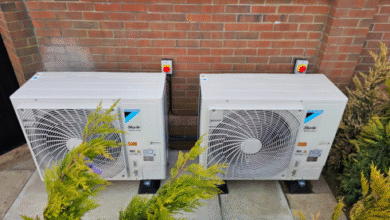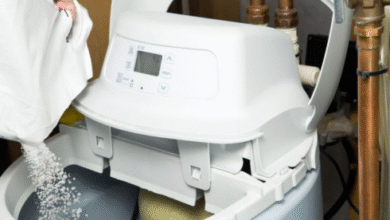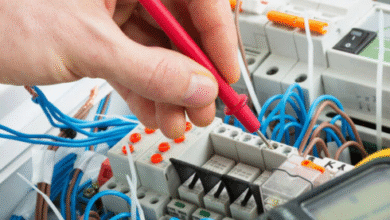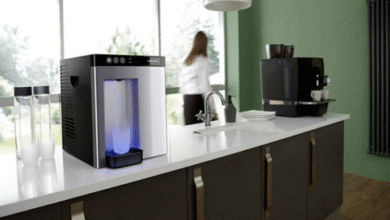The Often Overlooked Role of Water Softeners in Commercial Spaces
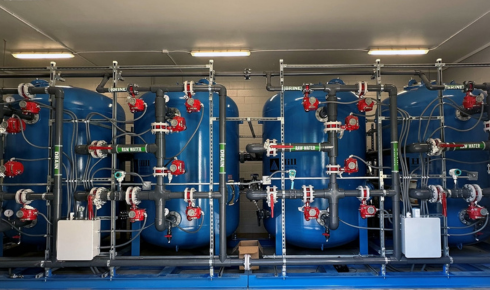
Walk into any bustling restaurant kitchen, a hotel laundry room, or even a manufacturing facility, and there’s one unsung hero working behind the scenes: the water softener. It doesn’t get the spotlight like fancy new equipment or shiny countertops, but without it, many businesses would be stuck battling limescale, soap scum, and clogged pipes. Funny thing is, most people don’t think about water hardness until it becomes a costly headache.
I’ve seen it firsthand—business owners often call service providers only when their appliances start failing or when water bills spike from inefficiency. That’s usually the wake-up call. And suddenly, the question pops up: “Where can I find a commercial water softener service near me?” It’s not exactly a glamorous search, but it can make or break the daily operations of a business that depends heavily on clean, softened water.
Why Businesses Can’t Ignore Hard Water
Hard water might not sound all that threatening, but let’s break it down. It’s water that carries a heavy load of minerals, mostly calcium and magnesium. Sounds harmless enough—after all, we need minerals to survive. But inside pipes, boilers, dishwashers, or industrial machines, those minerals accumulate like cement. Over time, they form thick deposits that strangle efficiency and shorten equipment life.
Restaurants end up with spotty glassware. Hotels watch their linens lose softness and brightness. Manufacturing plants struggle with clogged lines or inconsistent processes. It’s more than an inconvenience—it’s a drain on resources, money, and reputation.
Enter the Commercial Water Softener
Think of a commercial water softener system as a silent problem-solver. While employees focus on serving customers or running machines, the system quietly removes hardness minerals, keeping water flowing smoothly. Unlike the little units people might have at home, commercial versions are built for scale. They’re designed to handle thousands of gallons daily without breaking a sweat.
There’s a science to how they work, of course—ion exchange, resin beads, brine tanks—but for business owners, what matters is reliability. If the system’s doing its job, appliances last longer, cleaning becomes easier, and operational costs take a welcome dip.
The Importance of Proper Installation
Here’s where a lot of companies trip up: they invest in a solid system but cut corners when setting it up. A rushed or poorly executed install can undo all the benefits. Think leaks, inefficient cycles, or a unit that’s just plain wrong for the building’s water demand.
That’s why choosing the right partner for commercial water softener installation is crucial. It’s not simply about hooking up pipes. A proper installation starts with water testing, system sizing, and making sure the layout allows for easy maintenance later on. Businesses that skip this step often circle back months down the road, paying more to fix mistakes that could’ve been avoided.
Regular Service Keeps Things Running
Here’s the thing about water softeners—they’re not “set it and forget it.” Sure, they’re low-maintenance compared to other industrial equipment, but they still need attention. Resin tanks get exhausted, valves wear down, and brine tanks need the right salt levels.
Scheduling service is like changing oil in a car: you might stretch it a little, but ignore it completely and you’re asking for trouble. Regular checkups keep efficiency high and prevent those “oh no” moments when the system decides to quit on the busiest weekend of the year.
Hidden Benefits That Add Up
One of the often-overlooked perks of water softening is energy savings. Hard water forces boilers and water heaters to work overtime, which jacks up utility costs. With softened water, equipment heats faster and runs more efficiently. That translates into smaller energy bills—something every business can get behind.
Then there’s the customer experience. Guests at a hotel might not know a water softener exists, but they’ll definitely notice fluffy towels and spotless glassware. Restaurant diners enjoy cleaner plates, and staff members find their cleaning routines less grueling. It’s the little details that quietly improve brand perception.
Choosing the Right System and Service
So how do businesses choose wisely in a sea of options? First, size matters—a lot. An undersized system will constantly struggle, while an oversized one wastes resources. That’s where professionals come in, analyzing water usage patterns and designing solutions that fit.
Second, not all providers are created equal. A company that sells the system should ideally also handle installation and ongoing service. That continuity means fewer headaches and faster responses when issues pop up. And yes, sometimes it’s worth paying a little extra for peace of mind.
Wrapping It Up
At the end of the day, water softeners don’t get much glory, but they keep businesses humming in ways few notice until they’re gone. A hotel’s glowing reviews, a restaurant’s sparkling silverware, or a factory’s smooth production line can all trace part of their success back to softened water.
So next time you’re sipping a crystal-clear glass of water at a restaurant or enjoying a luxurious shower at a hotel, remember—there’s likely a hardworking water softener behind the scenes. And if you’re a business owner? Maybe it’s time to stop putting off that service call, because ignoring hard water problems rarely ends well.

